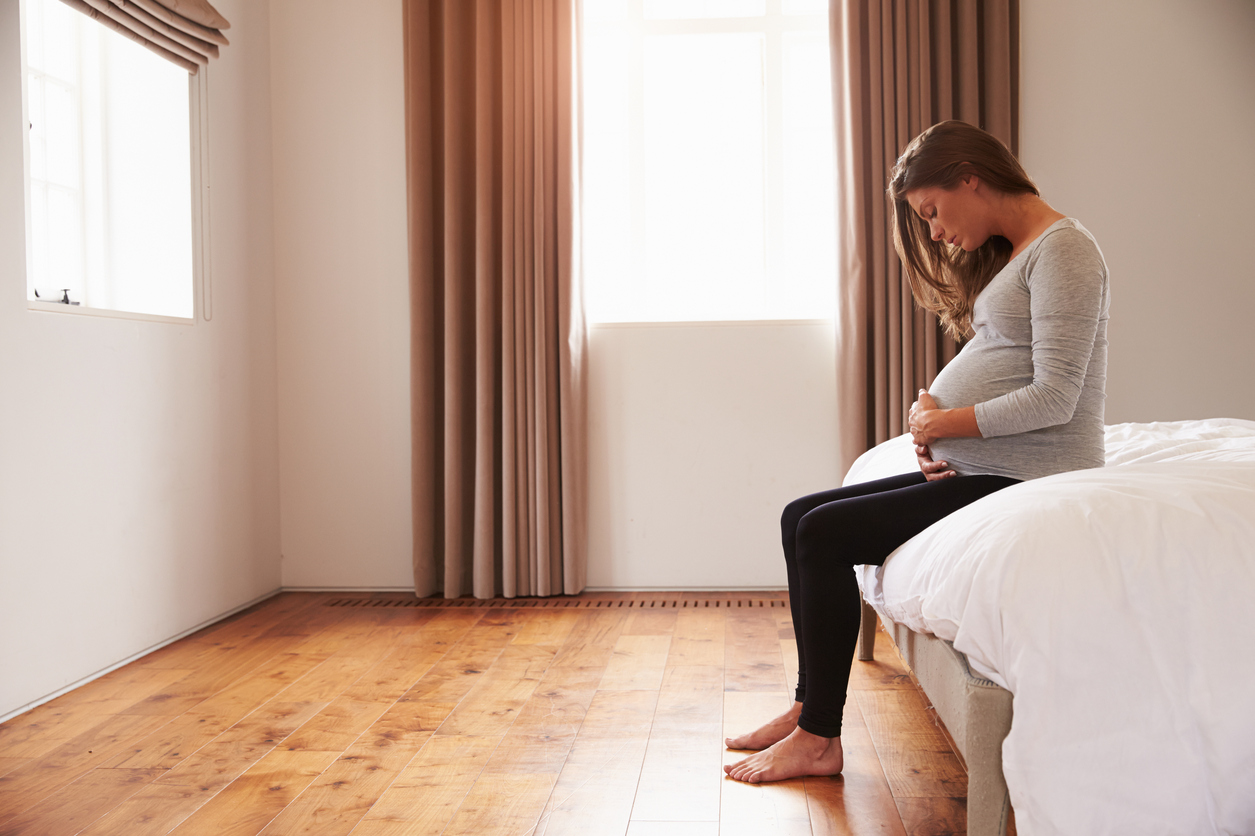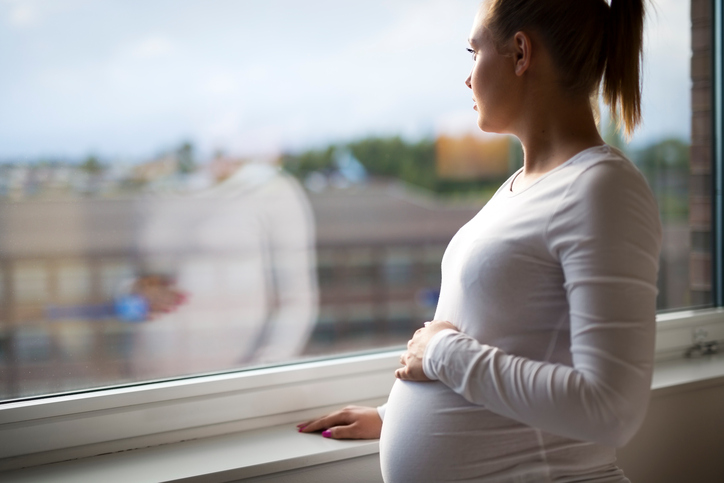Feeling depressed during pregnancy is not uncommon, but that doesn’t mean it’s “normal”. If left untreated, it can be harmful to both you and your growing baby.
Which is why it’s definitely something you want to discuss with your doctor.
But therein lies the problem. Many women don’t bring up the topic of depression during pregnancy. It’s almost a taboo topic.
Some women may feel guilt or shame about feeling depressed during pregnancy because this is supposed to be a “happy” time.
“Young women today are 50 percent more likely to experience prenatal depression than their mothers were in the 1990s.”
–U.K. study conducted by University of Bristol
Other expecting moms might think they can power through their feelings without seeking depression treatment, which can make depression symptoms even worse.
Listen up, there is NO SHAME in talking to your healthcare provider about feeling depressed during pregnancy. Zero.
While it isn’t “normal” per se, it certainly isn’t rare.
In fact, 14-23% of expecting women will experience some form of depression during their pregnancies.
So you are NOT ALONE. Your doctor has helped many women going through similar experiences, and they can help you too.
Another reason women don’t report feeling depressed during pregnancy is that they aren’t sure if they’re actually suffering from depression, or just normal anxiety during pregnancy caused by fluctuating hormones.
Yes, it’s normal to have some degree of worry over your pregnancy and the health of your baby. And yes, pregnancy hormones will cause normal symptoms such as fatigue and difficulty concentrating.
But persistent symptoms of depression and/or anxiety fall outside of the range of normal and should be reported to your doctor.
RELATED: Top Ten Helpful Parenting Books

So how can you tell the difference between hormones and actual depression and/or anxiety symptoms? Here’s what doctors say you should watch out for.
Feeling Depressed During Pregnancy: Warning Signs
Symptoms That Point To Depression:
- Feeling down or being in a depressed mood (most of the time) for two weeks or longer
- Losing interest in the world around you
- Feeling hopeless or worthless
- Low energy
- Poor concentration
- Sleeping too little or too much
- Brooding or guilt
- Suicidal thoughts
Symptoms That Might Indicate An Anxiety Disorder:
- Excessive worry that you’re unable to control
- Concurrent, persistent, and intrusive thoughts; along with compulsions to relieve those thoughts (OCD)
- Feeling restless, irritability
- Disrupted sleep patterns, fatigue
- Panic attacks and/or a persistent fear of panic attacks
RELATED: 9 Tips For Helping Kids With Anxiety
It’s OK To Ask For Help
If you are experiencing any of these symptoms it’s very important that you tell your partner and your doctor how you’re feeling.
You don’t have to suffer through depression or anxiety alone. It’s totally okay to ask for help!
Even if you’re not 100% sure if what you’re experiencing is depression, it’s always better to err on the side of caution.
Untreated depression and anxiety during pregnancy can have negative consequences for both you and your baby such as; low birth weight, preterm labor, preeclampsia, or not being able to adequately take care of your physical health (just to name a few).
This isn’t something you want to ignore or hope will go away on its own. For your health, and the health of your baby, speak up!
The good news is there are many treatment options available, both medicinal and non-medicinal, that can help you find some relief.
Work with your healthcare provider to determine what option makes the most sense for you so you can get back to feeling like yourself again and enjoy your baby.
And keep in mind that one in seven women experience some form of postpartum depression, so continue to monitor your symptoms after the baby is born.
SHARE is feeling depressed during pregnancy normal on Facebook and Pinterest by clicking the buttons below.












